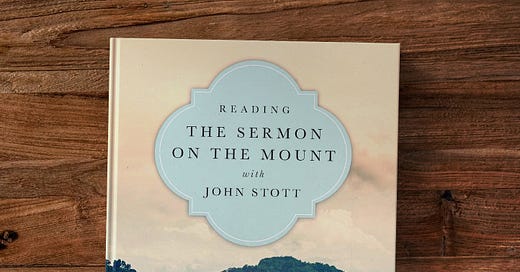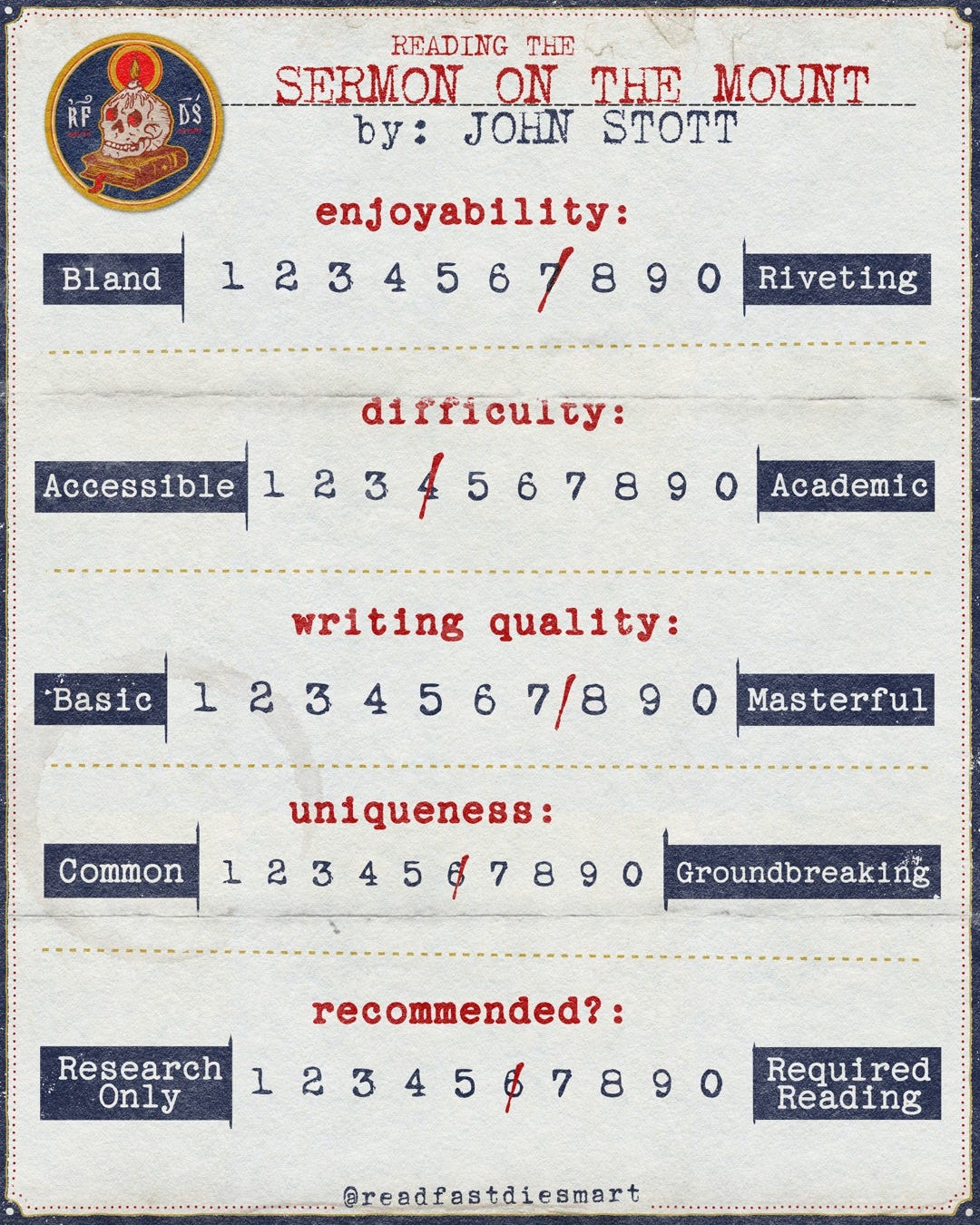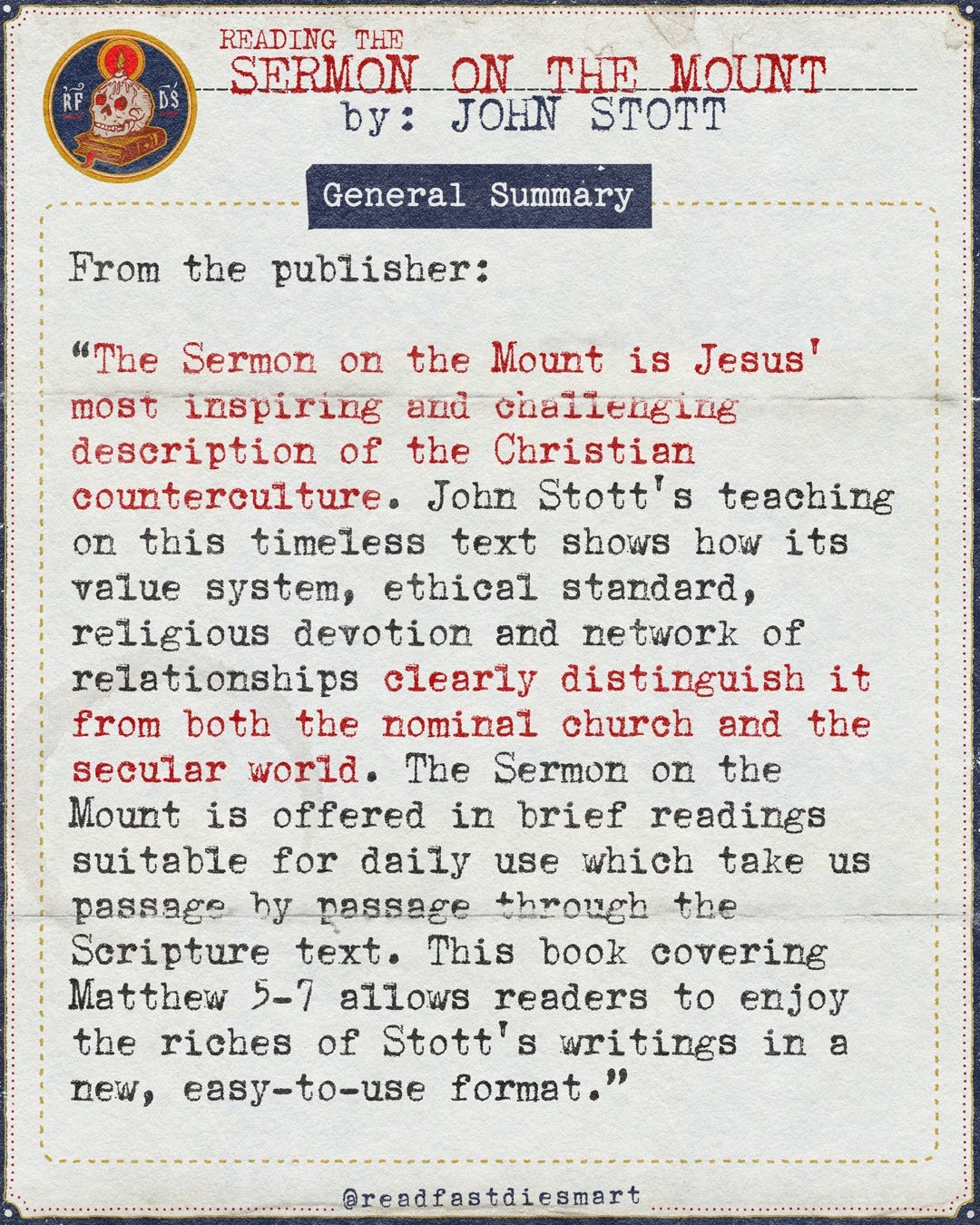-QUOTES-

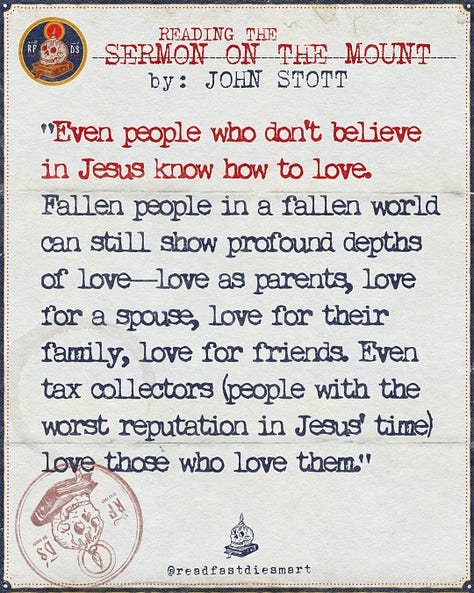

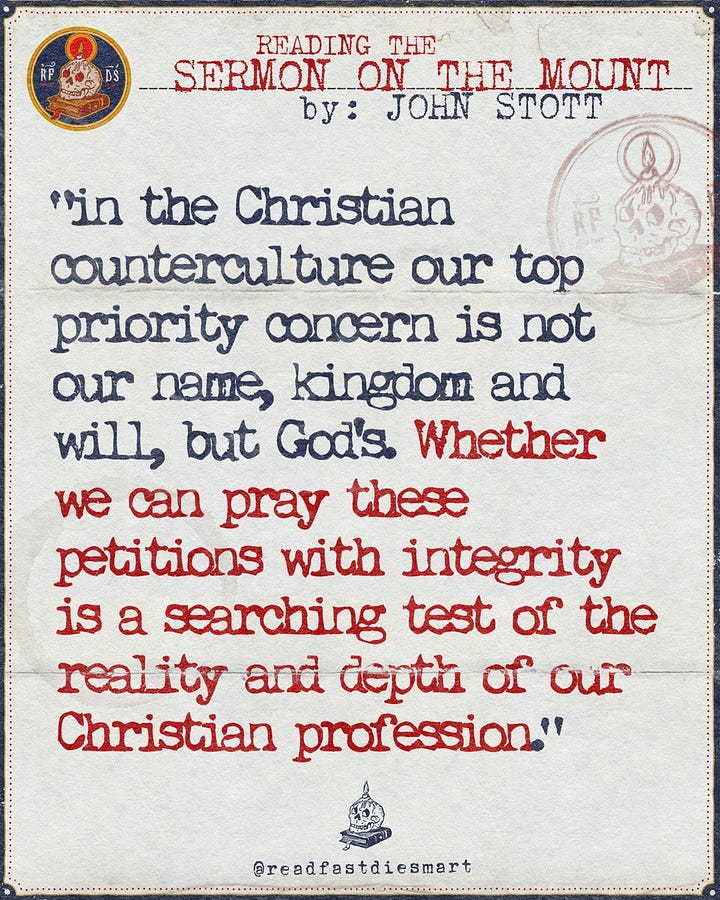

MAIN TAKEAWAYS:
-”The Sermon on the Mount is probably the best-known part of the teaching of Jesus, though arguably it is the least understood, and certainly it is the least obeyed.”
-As followers of Jesus - we are called to take these words seriously and allow them to shape us into Kingdom people.
-The teachings of the sermon have revolutionary implications if followed.
-There is a uniqueness in the way of Jesus that cannot be fully found anywhere else.
WHAT'S THE VALUE IN READING THIS?
Like any other commentary or guided reading - Stott slowly walks us through one of the most powerful teachings penned, causing us to pause and reflect after each portion. He really draws us into the unique and revolutionary aspects of Jesus' message - and how it prepares us to live as Kingdom people. He (mostly) gives the sermon its due respect and challenges all Christians to live up to its high and costly demands. Reading Matthew 5-6 is a powerful practice - and coupling it with John's commentary will only increase its efficacy.
WHAT'S THE DANGER IN READING THIS?
The one main concern/disagreement I have with Stotts interpretation of the Sermon on the Mount would be the way in which he makes allowances for christians to subvert Jesus teachings on violence and conflict if it is a situation that extends beyond personal relations. He makes distinctions between personal and judicial conflicts stating: "Jesus is not saying that no one should resist evil, just that we should not take the law into our own hands by seeking personal revenge." There is a logic here that is easy to track with - and it can be backed by appealing to Romans 13 - but ultimately I feel as though it's a weak argument. The requirements of discipleship should not be jettisoned just because a person takes on the role of a soldier, judge, cop, or attorney. The meme plays true here.
JESUS - "Do not kill."
ME - "What if the government tells me to?"
JESUS - "Oh, it's ok then."
This mode of thinking is ultimately the basis for what becomes Christian Nationalism - and I'm not here for it.
PERSONAL THOUGHTS
I don't know if I have too much to add on this one. I chose to read this book at this time because I was feeling a bit overwhelmed with all of the more polarized subjects I had been diving into as of late. I wanted something that was essentially just Jesus-focused, encouraging, and that would remind me of why I read theology in the first place. I haven't read much Stott in my life - but I've been very curious about him for some time now. He largely came on my radar because of his views on Annihilationism. As a prolific and respected theologian, it shocked the Christian world when he began publicly questioning/rejecting Eternal Conscious Torment theories and promoting Conditional Immortality. This particular book doesn't delve into the subject - but I wasn't reading for that purpose anyway. I largely enjoyed Stotts perspective - save what I mentioned above - and I'm looking forward to reading more of his works in the future!

